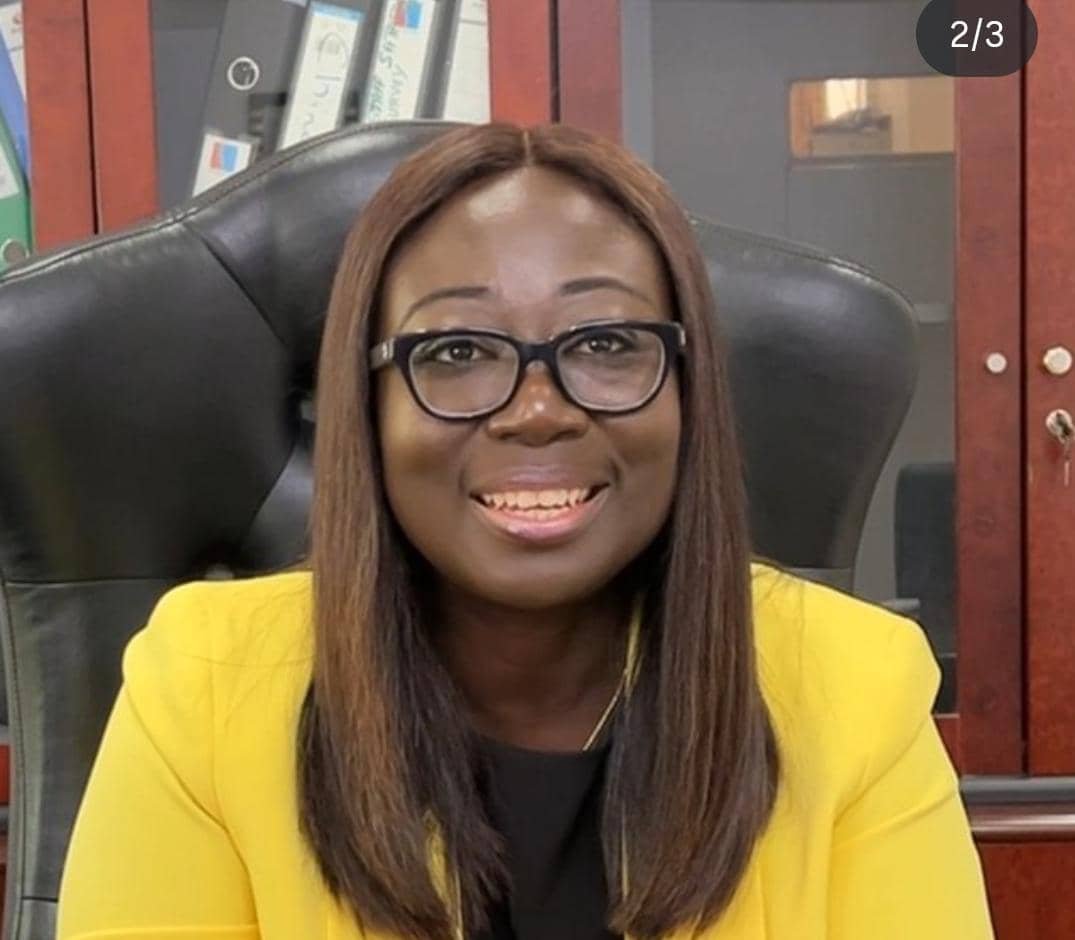Gender
COVID-19 and matters arising

The corona virus pandemic has really wreaked havoc in the world, causing many deaths and making others sick and putting a huge burden on healthcare systems.
Luckily, a number of vaccines have been developed and are being administered to people in various countries to help control this deadly disease which has now become an albatross around our necks in the world.
Keeping safe
Everybody is doing their best to keep safe. People are managing with the “new normal” regarding the safety protocols such as social distancing, not hugging or shaking hands, wearing of masks, regularly washing of hands or using hand sanitisers, etc.
The need to adhere strictly to the safety protocols has become even more necessary because of the different variants of the virus and how they are spreading quickly. According to health experts, a number of different variants of the corona virus are now circulating around the world.
There are many reports where people have accidentally become infected after all their diligence with the safety protocols. You never know, actually.
Boosting one’s immunity
Health and nutrition experts have been advising on the need to boost one’s immune system with healthy foods rich in vitamins, exercises or physical activities to keep the body strong and help to fight sickness.
A good immune system, it is said, helps to fight the virus and prevents it from doing damage to our health. We are advised to eat leafy greens such as spinach, and other foodstuffs such as fruits and vegetables that are rich in vitamins, zinc, and other immune boosting nutrients.
Our own kontomire and other greens used for soups and stews are very healthy. These days because I cannot get kontomire here (Finland). I use spinach to prepare green kontomire-like soup. I enjoy the more of this and other foodstuffs, such as plantains (I usually mash the plantain into an oto with smoked dried fish to give it an aromatic touch, accompanied with slices of avocado pear, which I eat straight from the apotoyewa).
A friend here recently told me that in their home they had made it a point to eat salad (with other vegetables) every Saturday morning. No room for complacency oo.
Why I will get vaccinated
Luckily, a number of vaccines are being administered to people in many countries to help control this deadly epidemic which has now become an albatross around our necks in the world.
I cannot wait to receive my vaccination. Some friends elsewhere have taken the first and second shots and are doing okay. They are so elated to have had that opportunity.
Ghana has taken delivery of its initial vaccines recently and has started administering. That’s good.
According to key health institutions and experts, vaccines are an important part of stopping the spread of COVID-19 as they reduce the severity of the symptoms in case one becomes infected.
This is one important reason I will not delay at all to take the vaccine. I will take it sharp, sharp. Again, who knows what happens should hoarding set in or if demand for the vaccines exceeds supply at a point in time? That means it will then become difficult to get vaccinated. A word to the wise…
The conspiracy theories
It is sad that there seems to be vaccine hesitancy in Ghana because of conspiracy theories, cynicism, ignorance, and worse of all, sheer mischief by some people. All this has resulted in casting doubts about the efficacy of the vaccines brought to Ghana and other African countries.
Some people think the vaccines for African countries are different from the ones for the Western nations; therefore, the ones brought to Africa could be dangerous and meant to depopulate the Black race. Some have even claimed without any proof that the vaccines would leave people with sexual dysfunction.
Such conspiracy theories remind me about HIV/AIDS. Conspiracy theories were rife about the disease in Africa with some people claiming that HIV/AIDS had been created in laboratories in the West to kill Blacks, that it affects only urban dwellers, etc.
In the end, HIV/AIDS saw many infections and deaths in Ghana and other African countries. Sub-Saharan Africa actually remains the most affected region in the global HIV epidemic and bears more than two-thirds of the global HIV burden, according to the UNAIDS.
Increasing the education
There is the need to intensify education about the vaccines to help control COVID-19. The key stakeholders—government/state institutions, health authorities, religious leaders, traditional authorities, non-governmental organisations in Ghana should all come in even more strongly than before to educate people in our localities. The media should be one of the leading groups in this endeavour.
Finally, let’s all follow the safety measures, especially the wearing of masks. Let the authorities constantly drum it home to us to help control the virus. Thank you!
The writer is a Ghanaian lecturer at University of Helsinki, Finland
Gender
Ending maternal mortality: A national, moral duty to mothers

When Ama Serwaa stepped out of her room that night, she paused at the doorway and looked back. Her two-year-old son was asleep, his tiny chest rising and falling gently. She bent, kissed his forehead and whispered, “Mummy will be back soon.”
It was a promise she never kept.
Ama was 28, seven months pregnant, and hopeful. She had been feeling unwell all day, but as many women do, she tried to endure it. When the bleeding started, fear crept in.
By the time her husband and neighbours realised it was serious, night had fallen and transport was hard to find. The nearest health facility was far away. Every minute felt like an hour.
By the time Ama arrived at the Ada district hospital, she was barely conscious. Within minutes, she was gone. Her unborn baby died with her.
In one night, a child lost his mother, a husband lost his wife, and a family lost its future. Ama became another silent statistics- another woman who left home pregnant and never returned alive.
Maternal mortality remains a challenge as far as reproductive healthcare services in Ghana are concerned.
The World Health Organisation (WHO) defines it as the death of a woman while pregnant or within 42 days of termination of pregnancy, regardless of the duration of the pregnancy, from any cause related to or aggravated by the pregnancy or its management but not from accidental or incidental causes.
This continues to be a great concern with majority of all maternal deaths occurring in developing Africa with more than half in Sub- Saharan Africa.
The Ghana Health Service (GHS) says, the country has recorded a slight increase in the institutional maternal mortality rate for 2024.
Data presented by the Director for Family Health, Dr Kennedy Brightson, at the Fifth National Maternal, Child Health, and Nutrition Conference in Accra shows a rise from 109.22 per 100,000 live births in 2023 to 110 per 100,000 live births in 2024.
Owing to the still high levels of maternal mortality in developing countries, especially Africa, it is now increasingly being recognised that actions required to achieve improvements in maternal health should involve comprehensive, multi-faceted approach.
Across Ghana, stories like Ama’s unfold quietly. There are no sirens, no headlines, no public mourning. Just hurried burials, unanswered questions and children growing up with fading memories of a mother’s voice.
It is this painful reality that formed the backdrop to a high-level Maternal Mortality Roundtable attended by the Minister for Gender, Children and Social Protection, Dr Agnes Naa Momo Lartey, as Ghana intensifies efforts to end preventable maternal deaths.
The roundtable, convened by the Office of the President through the SDGs Advisory Unit, in collaboration with the United Nations Population Fund (UNFPA) and the National Development Planning Commission (NDPC), was held under the theme: “No woman should lose her life to give a life.”
But for families like Ama’s, these words must mean more than fine speeches and conference banners. They must mean real change that reaches the last woman in the last village.
Speaking with emotion and urgency, Dr Lartey reminded participants that maternal mortality is not just a medical failure, but a failure of care, equity and accountability.
“Saving women’s lives must go beyond rhetoric,” she stressed. “It must be seen, felt and materialised in our communities, our clinics and our homes.”
She called for strong community accountability mechanisms, warning that when maternal deaths are normalised or hidden, society becomes complicit in the loss. Every woman who dies in childbirth, she noted, leaves behind a trail of grief that does not end at the grave.
“History will not judge us by the speeches we deliver today,” the Minister said quietly, “but by the lives we save through the path we take.”
She urged all stakeholders, government agencies, development partners, traditional and religious leaders to move beyond promises to clear commitments, timelines and responsibility, insisting that maternal health cannot remain an annual discussion while women continue to die daily.
Yet Dr Lartey was equally clear that the fight against maternal deaths also begins with women themselves. She urged pregnant women to take antenatal and postnatal care seriously, noting that many complications are preventable or manageable if detected early.
Health experts present acknowledged a painful truth: some women delay or skip antenatal visits because of distance, cost, fear or cultural beliefs. But these visits can be the thin line between life and death the place where danger signs are noticed before it is too late.
Dr Lartey reminded the nation that maternal health is not the burden of one ministry alone, but a shared moral responsibility — from policy makers to health workers, from chiefs to pastors, from husbands to neighbours.
“When women survive, children are born, families thrive, communities prosper and nations grow,” she said. “Saving women’s lives is not charity. It is justice.”
Today, Ama’s son calls his grandmother “Mama.” Her husband still keeps her cloth folded neatly in a box.
Her absence is felt in small, crushing ways an empty seat, an unanswered call, a child asking questions no one can answer.
Ama’s death should not be just another story told and forgotten. It should be a reminder and a warning.
If Ghana’s commitments remain words on paper, more women will leave home pregnant and never return. But if action replaces rhetoric, if women are supported to seek care, and if communities refuse to stay silent, then fewer families will have to whisper goodbye at a graveside.
By Esinam Jemima Kuatsinu
Gender
Expert urges regular antenatal attendance, adherence to medical advice

Dr. Akua Gyima Asante, the Medical Superintendent of the LEKMA Hospital, has urged pregnant women to attend regular antenatal clinics, adhere strictly to medical advice, and report early to health facilities when they notice any unusual signs.
She advised nursing mothers to practise exclusive breastfeeding, maintain good hygiene, and attend postnatal clinics to ensure the health and wellbeing of both mother and child.
Dr. Asante gave the advice after the LEKMA Hospital recorded nine successful deliveries on New Year’s Day, marking a positive start to the year.
She said the first delivery was recorded at 12:30 a.m., with five male babies and four female babies delivered during the day.
Six of the deliveries were normal, while three were conducted through caesarean section, Dr. Asante said, adding that the mothers and babies were in stable condition and responding well to medical care.
She commended the dedication and professionalism of the hospital’s healthcare staff for their role in ensuring safe deliveries and quality maternal care.
She reaffirmed LEKMA Hospital’s commitment to providing quality maternal and child healthcare services to residents of the Ledzokuku Krowor municipality and called for continued support to help the facility sustain its services. –GNA







